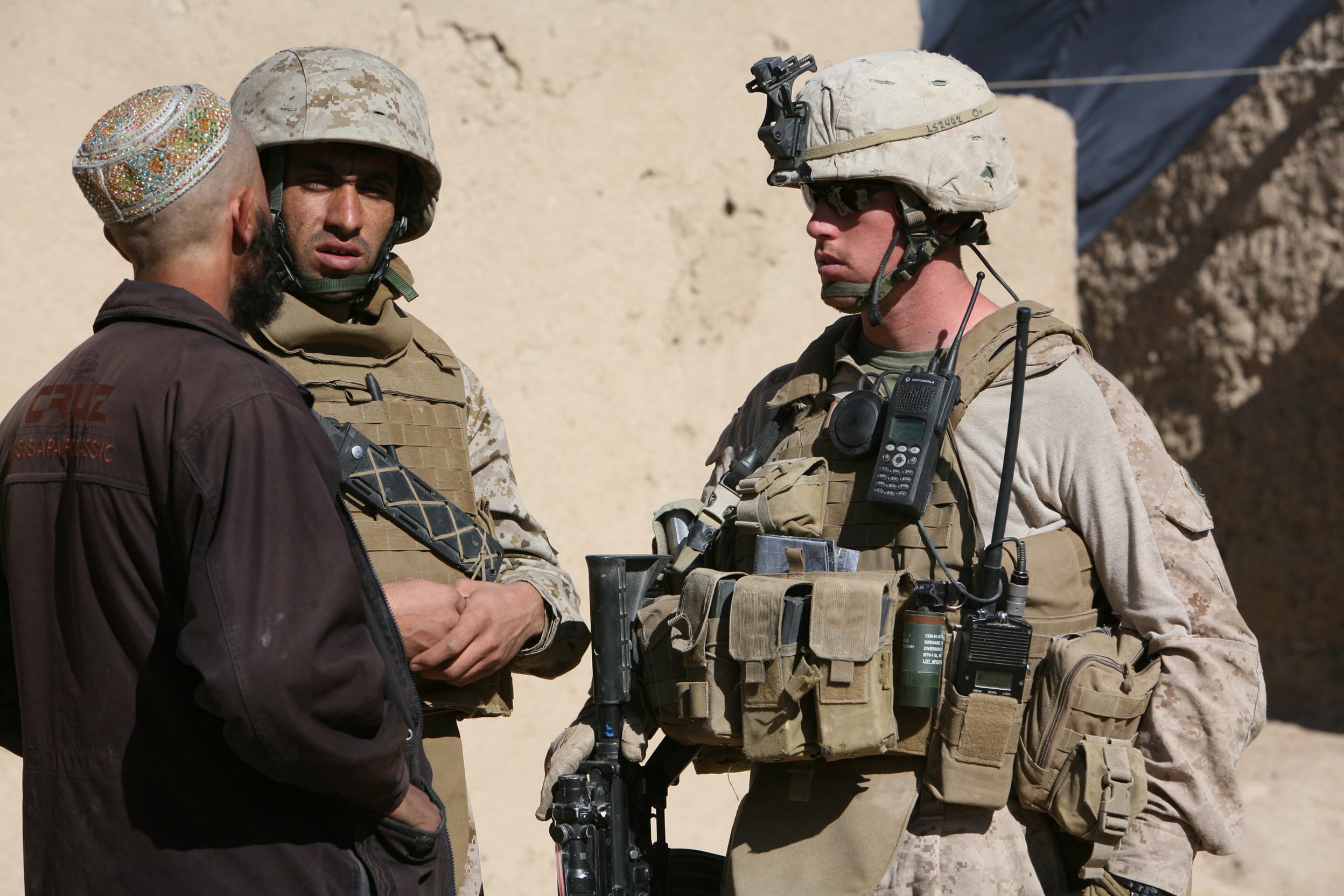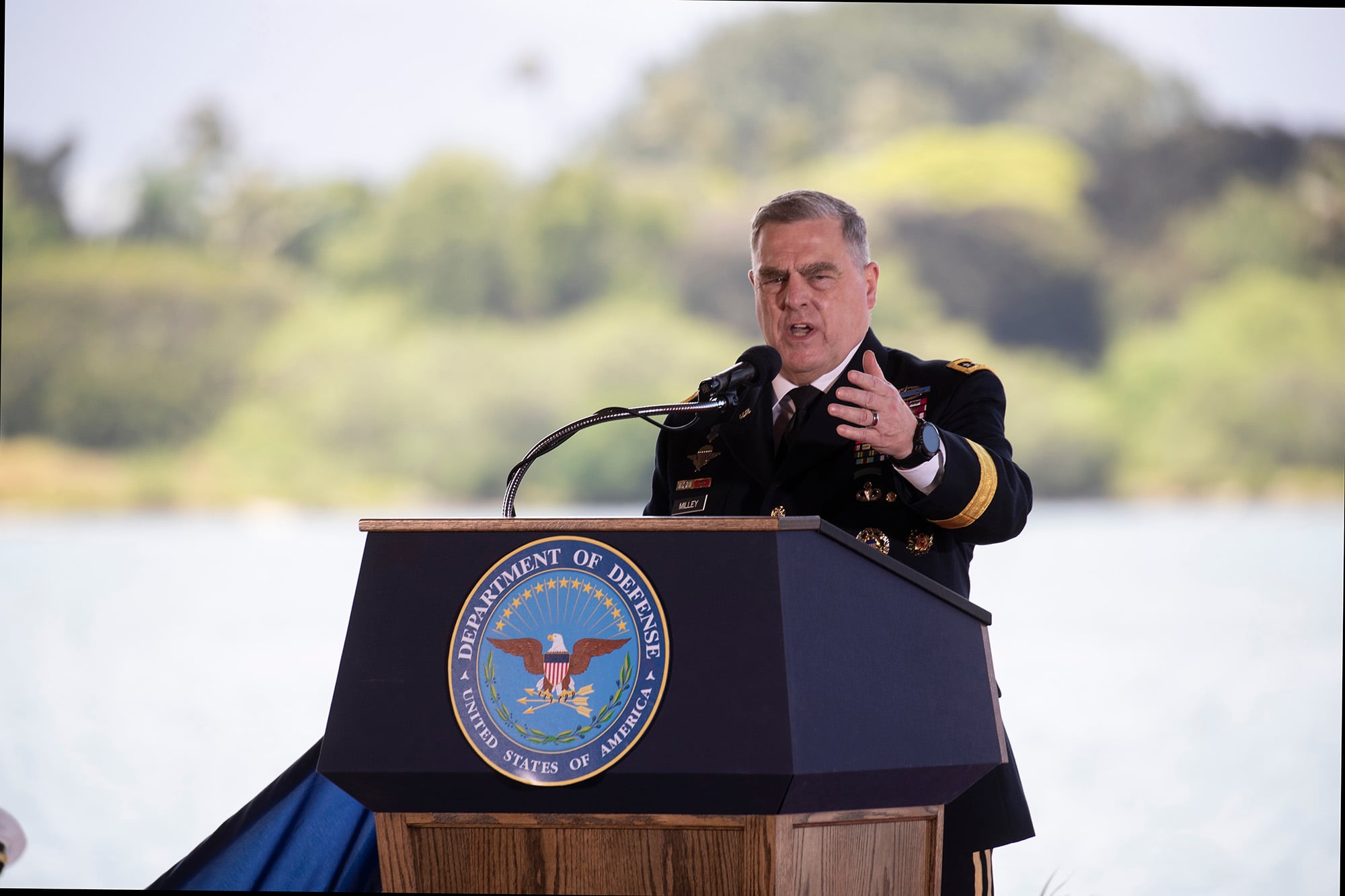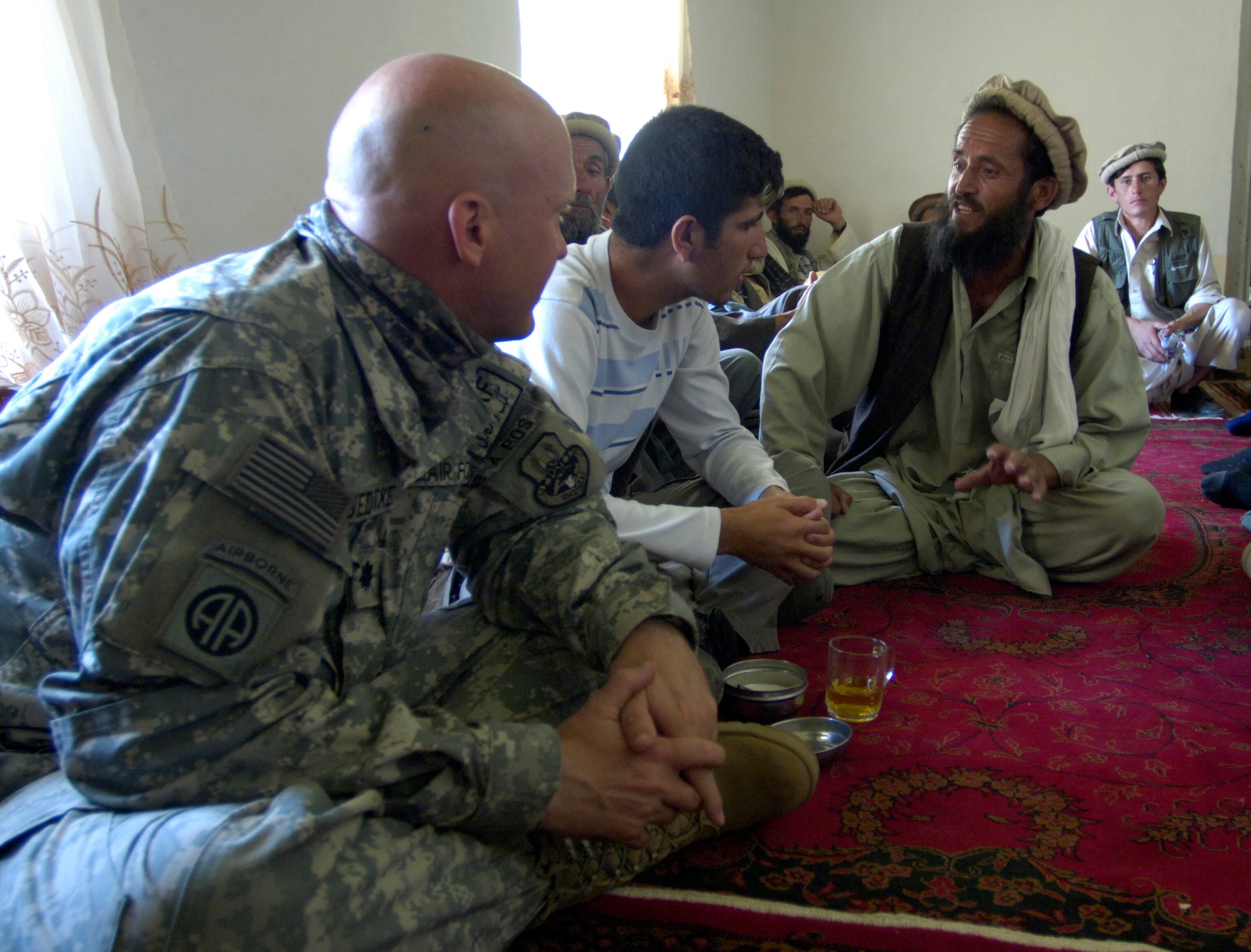Time is running out to find a solution for Afghan nationals looking to emigrate to the United States before American military forces leave the country.
On Tuesday, Senate Armed Services Committee member Angus King, I-Maine, held a news conference calling for military officials to lend personnel to the State Department to speed up processing of Afghan visa applications. He also suggested that NATO officials should make the issue a top priority.
“This is an emergency, and it needs to be treated as such,” the senator said. “If there are places that we or NATO control that could be used as an immediate waystation to bring these people to safety, I think we should do it.
“I want the White House’s hair on fire. I want them to do everything within their power to solve this problem.”
RELATED

King’s comments came just 88 days before the official end date to the U.S. military presence in Afghanistan, though he noted that U.S. forces may be withdrawn sooner.
Later in the day, defense officials announced they have taken more than 600 plane loads of equipment out of the country, and completed more than half of the withdrawal in the two months since President Joe Biden announced a goal of pulling all U.S. military forces out by Sept. 11. At the current pace, the job may be done a month early.
White House officials have repeatedly vowed to find ways to help the nearly 18,000 Afghan translators and contractors who have applied to emigrate to America through the Special Immigrant Visa program. Thousands more spouses and children could be eligible to leave along with them, but processing those applications takes years.
Starting this week, State Department officials have temporarily suspended visa interviews at the Kabul embassy in Afghanistan because of lingering coronavirus concerns. Jalina Porter, spokesman for the department, said those appointments will resume “as soon as it is safe to do so.”
Officials downplayed the looming departure deadline of U.S. troops.
“While troops are planned to leave there in September, the United States will maintain a robust diplomatic presence throughout the U.S. embassy, and our teams in the consular section in Kabul and Washington will continue to process qualified SIV applications as expeditiously as possible,” she said.
At the same time as King’s event, NATO Secretary General Jens Stoltenberg discussed the issue with reporters during his own press conference at the alliance’s annual summit in Brussels.
“There are many Afghans who have worked with us for many years and supported the NATO mission,” he said. “I welcome the plans of several NATO allies to resettle Afghans who have worked for us over these years, and I see that more and more allies doing that.
“But I cannot grant visas and assignments to NATO headquarters. It has to be to individual countries.”
Earlier this month, a bipartisan group of lawmakers urged the White House to begin transporting Afghan allies “immediately” to a safe zone such as Guam ahead of the full withdrawal of U.S. forces from Afghanistan. White House officials thus far have not acted on that request.
RELATED

Members of the Senate Armed Services Committee quizzed Defense Secretary Lloyd Austin on the issue during a budget hearing last week, and he is expected to face similar questions during another Capitol Hill appearance before the Senate Appropriations Committee this Thursday.
Marine Gen. Kenneth F. McKenzie Jr, commander of U.S. Central Command, told Military Times last week that he has presented Austin with evacuation plans if the department is so tasked, but reiterated the final call is not a DoD decision.
“We have workable plans to evacuate any scale of people that we would be directed to do,” McKenzie told Military Times in an exclusive interview June 11. “I’ve talked to the secretary about it. You know, the actual decision about who’s going to come out, whether they would come out and how that would work, is not the Department of Defense’s decision, that’s a Department of State decision and ultimately a level above the Department of State. I can tell you this. The Department of Defense is prepared to undertake any tasks that we would be required to do in coordination with a presidential decision.”
King said many of his colleagues — both Republicans and Democrats — are growing increasingly frustrated by the lack of progress.
“I’m not saying we should throw the gates open and just forget about the necessary examination to be sure that terrorists don’t come in,” he said. “But it can’t be business as usual. Maybe it means detailing several hundred people from somewhere else to the State Department for a period of time.
“We do need to be thinking about what we could do, to what place on the planet can we move these people to put them in a safe place while the processing moves forward.”
Leo covers Congress, Veterans Affairs and the White House for Military Times. He has covered Washington, D.C. since 2004, focusing on military personnel and veterans policies. His work has earned numerous honors, including a 2009 Polk award, a 2010 National Headliner Award, the IAVA Leadership in Journalism award and the VFW News Media award.





